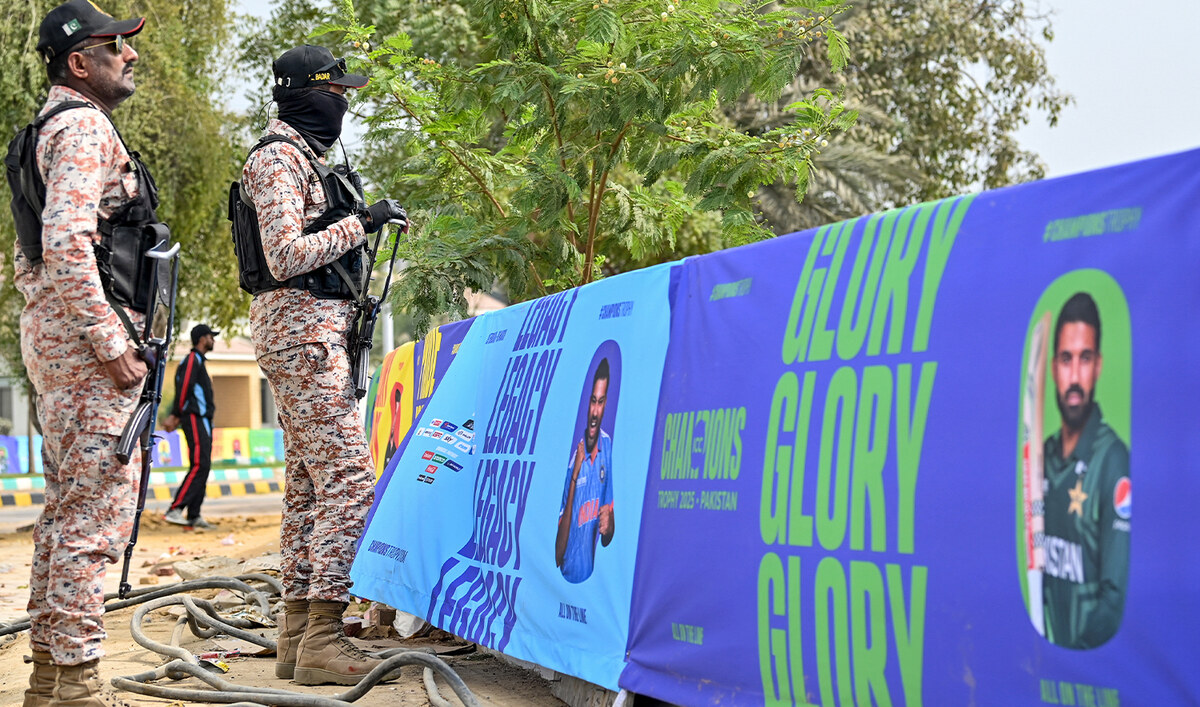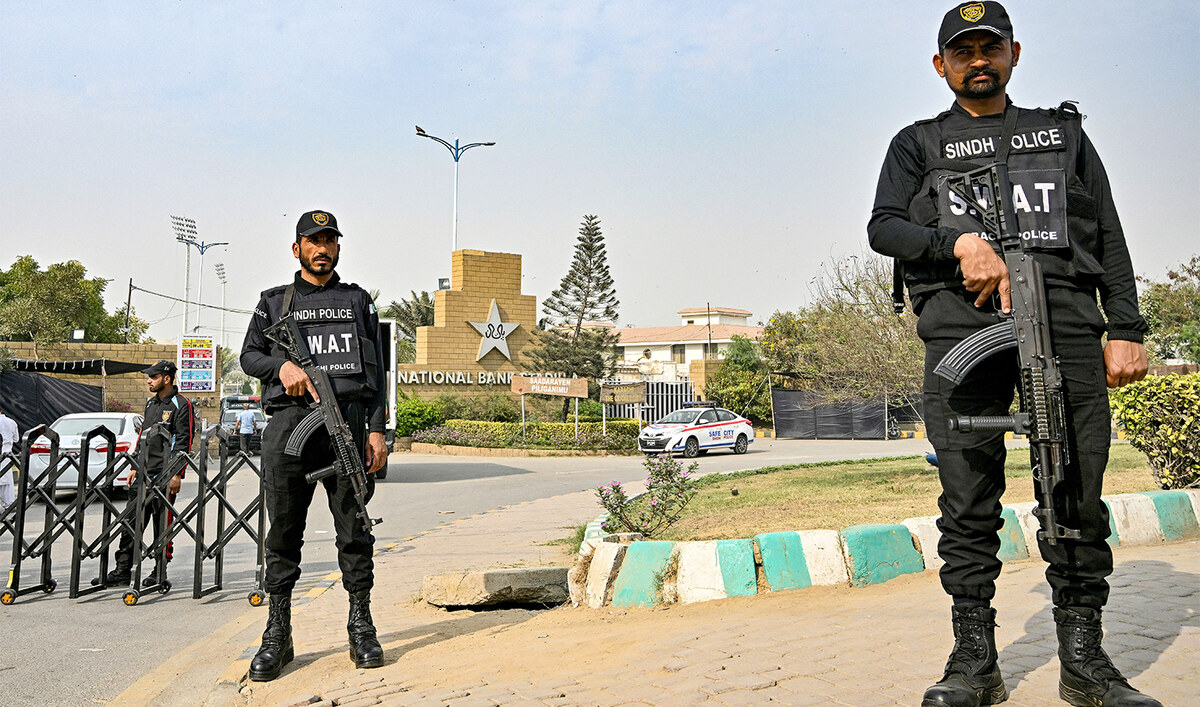ISLAMABAD: World Bank President Ajay Banga and IMF Managing Director Kristalina Georgieva on Thursday separately acknowledged steps taken by Pakistan to strengthen macroeconomic stability and address structural challenges, hours after the International Monetary Fund’s executive board approved a long-awaited $7 billion bailout deal for the struggling economy.
The IMF approved the 37-month Extended Fund Facility (EFF) late on Wednesday after commitments from Pakistan that it would strengthen fiscal and monetary policy and implement reforms to broaden the tax base, secure a level playing field for investment and enhance human capital.
The bailout deal was reached in July.
“Your prime minister laid out a very clear set of ideas of what he wants to prioritize. He used the words that he wants to prioritize things that help his people,” Banga told reporters after meeting with Prime Minister Shehbaz Sharif.
“Already in these six months, you [Pakistan] are already making a whole series of steps on macro stability and reforms. I think that is something I appreciate.”
In a separate bilateral meeting with Banga on the sidelines of the UN General Assembly, Sharif appreciated the World Bank’s continuous support to the government of Pakistan in introducing critical economic reforms and addressing economic challenges, including poverty reduction and infrastructure development.
“The Prime Minister apprised the president of the government’s steps, involving policy, administrative and organizational reforms, to realize the full potential of the economy and to promote inclusive and sustainable economic growth,” a statement from Sharif’s office said after the meeting.
“He added that the government has also implemented reforms, particularly in Energy, Finance and Revenue sectors and Pakistan looks forward enhanced support from World Bank for government’s revitalized economic reforms agenda.”
After the bailout approval, PM Sharif also thanked the IMF managing director, Kristalina Georgieva, and said the country would continue to implement the tough economic reform agenda.
Georgieva also congratulated Pakistan for moving forward with “home-defined” reforms.
“The economy is on the sound path,” she told reporters after the board meeting. “Growth is up and inflation is down.”
Sharif also held a bilateral meeting with Georgieva on Thursday and appreciated the collaboration with the IMF on the Extended Fund Facility.
“Prime Minister highlighted the government’s commitment to implementing structural reforms and promoting private sector development,” a statement from Sharif’s office said after he met the IMF MD.
“The Prime Minister also expressed appreciation for the IMF’s technical assistance and capacity-building programs, which have helped to strengthen the country’s institutions and improve its economic management.”
“SOUND POLICIES AND REFORMS”
The IMF has said the new program would require “sound policies and reforms” to strengthen macroeconomic stability and address structural challenges alongside “continued strong financial support from Pakistan’s development and bilateral partners.”
An immediate disbursement of about $1 billion will take place, an IMF statement said.
Pakistan’s stock benchmark index rose in early trade to a record high of 82,905.73 points, before reversing those gains later in the day to close 0.7 percent down at 81,657.
Islamabad had been working on implementing conditions, which Sharif had previously called “strict,” including getting additional external financing, which the country was struggling to do.
The IMF said in its statement that Pakistan had taken key steps to restore economic stability with consistent policy implementation under the 2023-24 standby arrangement.
It added that growth had rebounded to 2.4 percent and inflation has receded significantly, falling to single digits, amid appropriately tight fiscal and monetary policies.
A contained current account and calm foreign exchange market conditions have allowed the rebuilding of reserve buffers, and the central bank of Pakistan has been able to cut the policy rate by a total of 450 bps since June, the statement said.
Despite this progress, it said, Pakistan’s vulnerabilities and structural challenges remain formidable, adding that the tax base remained too narrow.
“Without a concerted adjustment and reform effort, Pakistan risks falling further behind its peers,” it warned.
The South Asian country is the IMF’s fifth-largest debtor, owing the Fund $6.28 billion as of July 11, according to the lender’s data.
Pakistan has been struggling with boom-and-bust economic cycles for decades, leading to more than 20 IMF bailouts since 1958.
Speaking to reporters on the UNGA sidelines, Pakistan Finance Minister Muhammad Aurangzeb vowed to make this the country’s last IMF program.
“So we will have to undertake structural reforms,” he said.
With inputs from Reuters



















